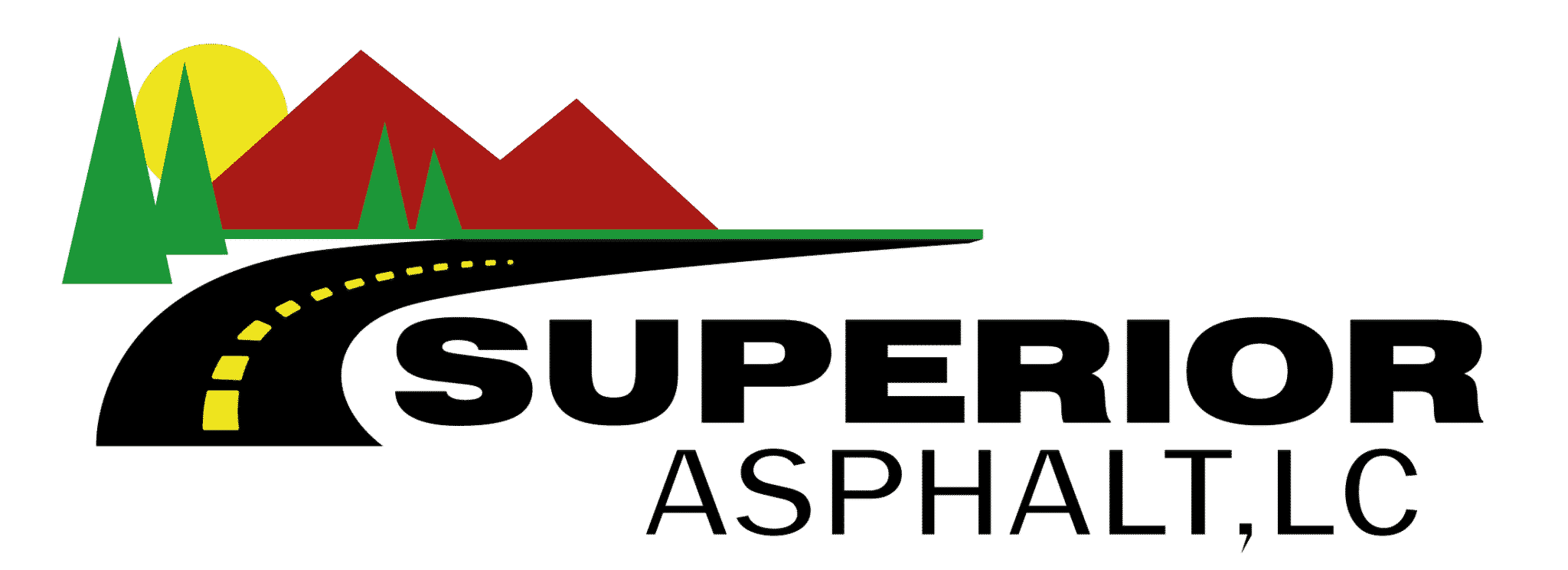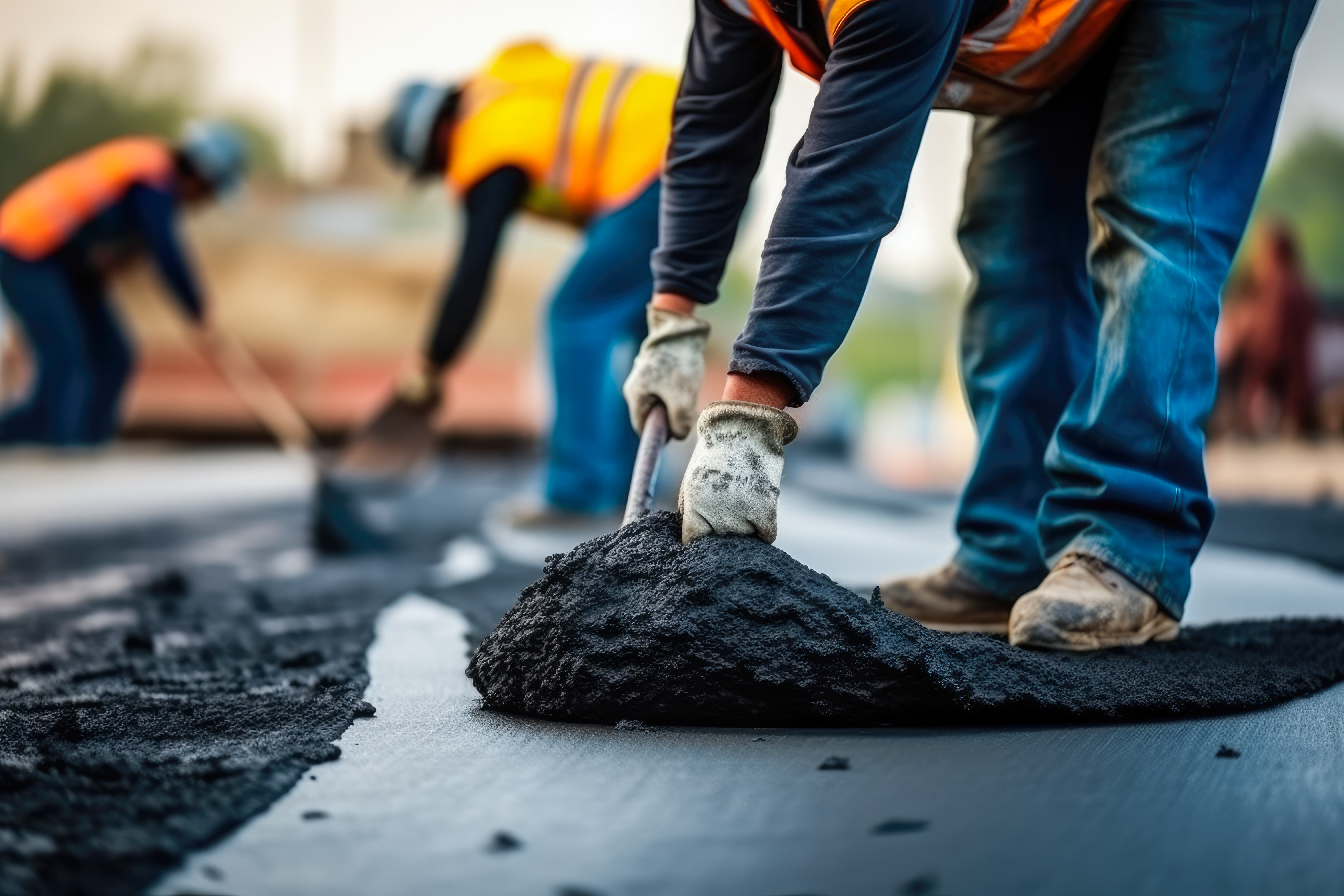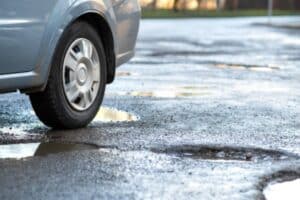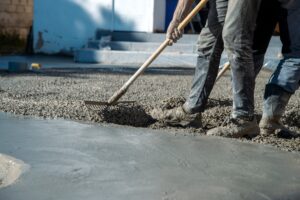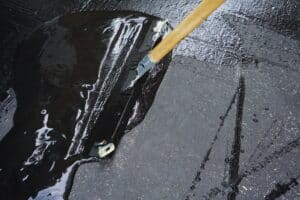For property owners with asphalt, you know that sealing is necessary for routine maintenance — but do you know the differences between slurry seal coat vs. seal coat? Whether it’s new or existing asphalt, slurry sealing and sealcoating have unique physical properties and ideal applications. Below is a comparison guide on seal coat vs. slurry seal so you can better decide which asphalt maintenance service is best for your property.
Slurry Seal vs. Seal Coat: What’s the Difference?
Asphalt paving can add value, protection, and aesthetics to a property. However, asphalt tends to break down over time due to exposure to environmental elements. This can make it prone to cracking under heavy loads and traffic. To prevent these problems and extend the life of your asphalt, regular maintenance is required.
This is where sealcoating and slurry sealing come in. These terms are sometimes used interchangeably, but each type of sealing has advantages depending on the project. For example, sealcoating adds a thin liquid layer over a paved surface to protect it from damage caused by UV rays, rain, and fluids from vehicles. It’s a cost-effective way to extend the life of your pavement. Slurry seal, however, is a thicker, more durable solution. Composed of asphalt emulsion, fine aggregates, and water, it provides a longer-lasting seal but comes with a higher price.
Both of these sealing methods have pros and cons, and the best choice depends on the specific needs of your pavement.
What is Slurry Seal?
Many people use the term slurry seal when referring to any type of asphalt sealant. However, this is not the case; slurry seal is a unique high-performance pavement preservation treatment known for its durability and resilience. It is essentially a mixture of asphalt emulsion, water, and finely crushed aggregate, creating a seal that delivers a rich, black finish to the asphalt surface.
The process of applying slurry seal involves the use of a large machine that mixes and applies the seal to the asphalt. Because of this intensive process, slurry seal tends to be about twice as expensive as sealcoating.
The lifespan of slurry seal varies depending on the location and traffic volume. Typically, maintenance is needed every 5-7 years.
Slurry seal is most beneficial in areas with high traffic volumes, such as roads and airports. However, it is not ideal for areas with poor drainage as the thickness of the seal can restrict water flow. By understanding the properties and benefits of slurry seal, you can decide on the best maintenance solution for your asphalt surfaces.
An important thing to note is that it is not recommended to use slurry seal on parking lots. With slurry seal, the aggregate is laid down first, then a sealant is sprayed on after that. The sealant that is sprayed onto the asphalt can become loose, and it turns into a much rougher surface. Most parking lots need an emulsion seal coat, rather than slurry seal.
Be sure that you only apply slurry seal to high-traffic areas. If slurry seal is applied to lower traffic areas, the aggregate will end up creating a mess.
What is Sealcoating?
Sealcoating is a unique preventive maintenance method used to protect asphalt pavement from the damaging impact of elements and traffic. It combines asphalt, water, and fillers, which creates a barrier against oil and gas leaks from vehicles, UV rays, and the freeze-thaw effects of winter weather.
The application process typically involves cleaning the asphalt surface thoroughly and applying the seal coat material using a squeegee or mechanical sprayer. Sealcoating costs significantly less than slurry seals, making it an attractive option for homeowners.
Sealcoating also improves the appearance of asphalt surfaces by providing a smooth, black, and non-porous surface. This helps increase the curb appeal of properties and makes line striping more visible.
Two primary types of seal coats dominate the market: emulsion and gilsonite seal coats. Of these, emulsion seal coats are more frequently chosen because of their superior thickness and durability. While coal tar seal coats were once a popular choice, they have fallen out of favor in Utah due to increasing environmental concerns.
If you’re unsure when to seal coat, refer to this guide outlining seven signs your parking lot needs sealcoating.
To maintain most surfaces, sealcoating should be applied every 2-3 years. This method is ideal for residential driveways, small parking lots, and other areas with light traffic. However, sealcoating may not be the most durable option if a surface has severe cracking or potholing.
Seal Coat vs. Slurry Seal: Which Asphalt Maintenance Service is Best for Your Property?
If, after reading this comparison, you still have questions about which asphalt maintenance service is best for your property, we have put together a table below for you to look over.
| Slurry Seal | Seal Coat |
| A mixture of asphalt emulsion, graded aggregates, water, and additives. | A mixture of asphalt, water, and other additives. |
| More expensive due to greater material and labor costs. | Less expensive, making it an attractive option for homeowners. |
| Ideal for high-traffic areas and roads due to its durability. | Ideal for residential driveways, small parking lots, and other areas with light traffic. |
| Lasts 5-7 years on average. | Lasts 2-3 years before more maintenance is needed |
| Can address more severe problems like cracking or potholing. | May not be the most durable option for surfaces with severe cracking or potholing. |
| Applied using specialized machines. | Applied using a squeegee or mechanical sprayer. |
Remember, choosing the right service depends on various factors, such as traffic volume, existing surface conditions, and budget.
Get Help Deciding Between Slurry Seal vs. Seal Coat for Your Asphalt
Sealcoating and slurry sealing have the same end goal: preserving your asphalt’s lifespan with routine maintenance. While both enhance curb appeal, each service has individual benefits and physical properties that best apply to certain asphalt conditions. For these reasons, we always recommend property owners contact asphalt professionals to help with asphalt maintenance plans. At Superior Asphalt, we’ll inspect your asphalt’s condition and advise on the best maintenance service that will be the most effective for your unique property. Contact us for questions on asphalt maintenance services or sealcoating today!
